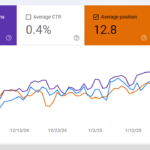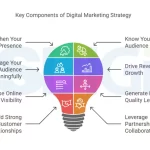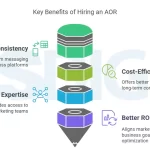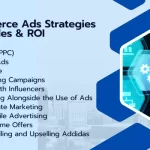The B2B (Business-to-Business) marketing landscape is a constantly evolving terrain where marketers have to keep their fingers on the pulse of emerging trends, technologies, and consumer behaviors. Unlike B2C (Business-to-Consumer) marketing, where the aim is to reach individuals, B2B marketing is oriented towards other businesses, which presents a unique set of challenges and opportunities. This article dives deep into the dynamic B2B marketing landscape, outlining the opportunities and obstacles that marketers must navigate to remain competitive.
Opportunities in B2B Marketing
Data-Driven Decision-Making
One of the biggest opportunities in modern B2B marketing is the availability of big data and analytics tools. Marketers can leverage data to gain actionable insights, making their strategies more efficient and effective.
Account-Based Marketing (ABM)
ABM allows businesses to target specific accounts or businesses rather than broad sectors, enabling a more personalized marketing approach. This leads to higher conversion rates and more meaningful relationships with clients.
Automation and AI
Marketing automation tools and artificial intelligence help in streamlining various marketing functions like lead generation, email marketing, and customer segmentation. This not only improves efficiency but also frees up marketers to focus on more strategic activities.
Social Media Presence
LinkedIn, Twitter, and even Instagram have become important platforms for B2B marketing. A strong social media strategy can help businesses establish thought leadership and generate quality leads.
Content Marketing
High-quality, value-driven content can establish a brand as an industry leader. Whitepapers, webinars, and educational blogs can not only help in SEO but also nurture leads throughout the buyer’s journey.
Obstacles in B2B Marketing
Longer Sales Cycles
In B2B marketing, the sales cycles are typically longer, involving multiple decision-makers. This creates a need for sustained engagement and a multi-touch strategy, which can be resource-intensive.
Increasing Competition
The rise of digital platforms means that businesses now face competition not just from local or national competitors but also from international players. This has led to a saturation in many industries, making it hard to stand out.
Budget Constraints
Many businesses still view marketing as a cost center rather than an investment. Budget constraints can severely limit a marketer’s ability to implement the latest technologies or strategies, putting them at a competitive disadvantage.
Regulatory Challenges
Especially in industries like healthcare, finance, and aerospace, compliance with various regulations can make marketing activities cumbersome and slow.
Changing Customer Expectations
With the digital transformation, B2B customers now expect a B2C-like experience. They are looking for easy-to-use interfaces, quick responses, and personalized experiences, which many B2B companies are still struggling to provide.
Conclusion
The B2B marketing landscape is ever-changing, offering a mix of opportunities and obstacles. On one hand, advances in data analytics, AI, and social media provide exciting new avenues for customer engagement and lead generation. On the other hand, longer sales cycles, budget constraints, and increasing competition make the environment challenging.
To succeed in this dynamic landscape, marketers need to adopt a flexible, data-driven approach that is customer-centric and focused on building long-term relationships. Adopting the right technologies and strategies can turn challenges into stepping stones for future growth and success.
By staying updated on industry trends and continuously adapting, B2B marketers can not only navigate the complex terrain but also find new ways to create value, both for their businesses and their customers. Get in touch with us to learn how we can help your business growth.















